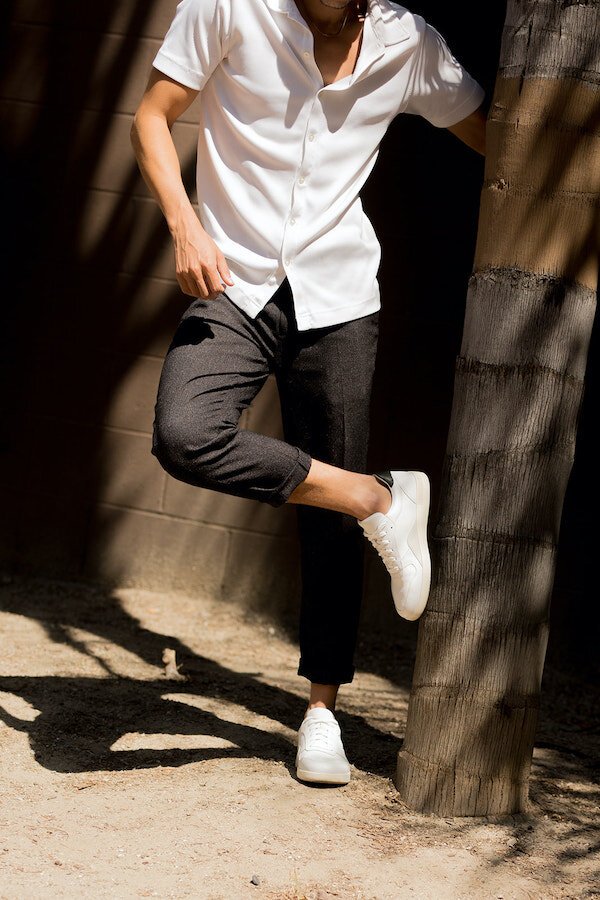
Why I’m Still Using My Vacation Days Even When I Can’t Travel
When Vacations Aren’t What They Used To Be
When Boston shut down last March, I threw myself into my work as I desperately tried to keep busy. My goal was to avoid processing what unfurled around me, and while this wasn’t the healthiest approach to cope with a global health crisis, I wouldn’t feel the consequences of my behavior until much later in the year.
In the fall, the difficulties of isolation, as well as the looming Boston winter, compounded the work-focused whirlwind I’d launched myself into. I started to feel listless and exhausted. But I couldn’t shake the feeling that, since I was home, I should work. It was a layered feeling of guilt, and I didn’t think I should take time off during a pandemic. The fact that my co-workers and clients knew that I’d be at home (because where else was I going to be?) only added to this pressure.
“I couldn’t shake the feeling that, since I was home, I should work….Still, I was in desperate need of a break.”
Still, I was in desperate need of a break. I hadn’t taken a vacation since 2019, almost a whole calendar year prior, and I was experiencing a form of burnout. I knew it wouldn’t get better until I actively carved out time for myself to rest. I needed a vacation, even if it was spent in my apartment.
If you work for yourself, don’t work, work part-time, or don’t get PTO, your “vacation days” may look different than what’s offered at a 9-to-5 job. But taking a vacation doesn’t have to be about traveling somewhere or spending money; it’s about prioritizing rest and taking a break from our routines. Our wellbeing requires time to disconnect and reset—even if we can’t travel, and even if taking vacation days isn’t what it used to be.
“Our wellbeing requires time to disconnect and reset.”
Naming and Combating Burnout
Despite the progress made towards a vaccine, 2021 will likely see many of us staying home. Travel restrictions remain in place, and working remotely is the new norm for many of us. But one thing that can be different this year is how we prioritize rest.
I’ve historically been quite resilient when it comes to stressful situations. However, 2020 presented external stressors that I couldn’t control. It affected my ability to bounce back from the stress I would normally have no issue managing. While I don’t feel that I reached a point where I experienced a full-on state of burnout, the symptoms did start to seep in.
Once I named what I was facing, I wanted to take my time of rest to effectively care for myself. If you have been experiencing something similar, these are some of the practices I found helpful:
1. Practice Daily Movement: One of the first things I noticed is how little I had been moving my body right before I had my burnout epiphany. To help, I committed to a daily walk or yoga practice—but I had to guarantee that I would create a scenario where I felt present. For example, my walks were done without music so that I could be in the moment.
2. Listen to Your Body: When I’ve taken breaks or vacation time in the past, I’ve spent some of the time catching up on creative projects. This time around, though, what felt best was to honor how I felt in the moment. If my body told me that the right thing to do was stay in bed and read or go for a long walk, I listened. I didn’t try to force myself to do anything. Eventually, I started to feel the spark to create again, and I sprinkled that into my calendar when it felt right.
3. Create a Plan for the Future: While I wish vacation could heal burnout, it doesn’t always vanish after a few days off. This is why I’ve learned to prioritize self-care post-vacation, too. I’ve had to build a plan to incorporate rest into my weekly routines, and I now take one weekend day to unplug.
4. Embrace the Joy from Travel at Home: Traveling has always brought me ease and joy. While I was taking time off at home, I discovered dancing does this, too. It’s fun, spontaneous, and takes me out of my routine. I’m convinced that the internet is partially to blame for this, but I found it to be incredibly relaxing. I’ve been enjoying any music published in or inspired by the ‘60s and ‘70s for my dance breaks.
“While I wish vacation could heal burnout, it doesn’t always vanish after a few days off. This is why I’ve learned to prioritize self-care post-vacation, too.”
Rest As An Act of Resistance—And How We Can Advocate For Others
I would be remiss if I didn’t mention how inaccessible rest and “vacation time” can be, especially for Black women for whom rest is a radical act in the face of capitalism and white supremacy. Rest is powerful; everyone needs it to navigate the world. We ought to rest not only for ourselves but so that we can show up for our communities. This way, we can ensure that others receive the support they need to take a vacation and experience rest and renewal. Here are some actions we take to work towards this:
Advocate for minimum wage increases and wage equality so that everyone has the financial security to take vacation time.
Discuss better vacation packages or vacation policy options, such as donating vacation days you don’t use to other coworkers, with your company leadership.
Support freelancers & content creators by tipping them for their work when you find it valuable. Subscribe to their Patreon if they have one, and be diligent about engaging with their sponsored content.
Provide or advocate for fair payment to any freelance partners you or your company might work with, so they have the financial security to take time off.
Taking vacation time to rest is an act of resistance to our ever-accelerating world and against the belief that endless “grinding” is the only path to success. May we savor every moment of it that we can create for ourselves and others.
How do you reset and find rest without traditional travel? Share in the comments below!
Zach Thomas (he/they) is a Boston-based writer, stylist, and photographer who focuses on sustainability and environmentalism. When they’re not creating, you can find them scouring their local vintage/thrift shops. You can connect with him on Instagram.
